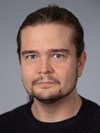Subribe to the seminar e-mail list
Subscribe to mathmodelinganalysis-seminar@lists.umu.se for notification of future seminars.
Send an email to sympa@lists.umu.se and in the subject/heading of the email write: subscribe mathmodelinganalysis-seminar
Leave the email blank.



